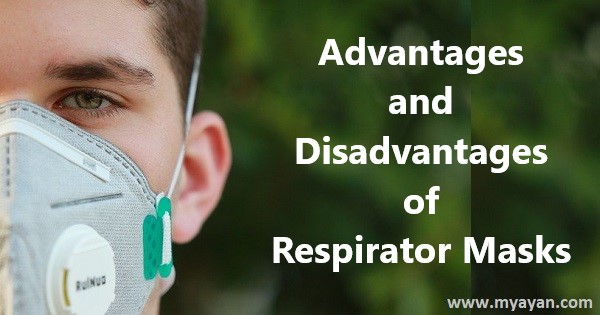Respirator Masks have drawn more and more attention from consumers even since the pandemic triggered the alarm. With dwindling global supplies of breathing masks, people have grown more conscious about the use and efficacy of masks more than ever. How these different types of breathing masks can be helpful, and what are their limitations? These advantages and disadvantages of Respirator masks explore some essential information and facts.
Depending on the work environment and occupational circumstances, respirator masks can be categorized into different types and different series. With a primary purpose to cover your eyes, Respiratory Passage, and Mouth, these masks offer protection against occupational as well as environmental threats lurking in the air. Most of the respirators are for one-time use only and must be disposed of to avoid any health hazards.
Occupational Respirator Masks
Note: This section focuses on Non-Occupational respiratory masks or generally used masks, which are Dust masks, Paint Fume Respirator Mask, Smoke Respirator Masks (N95 Masks) that are also used as Personal Protection Equipment in Health & Medicare Sectors.
Respirators are categorized as Personal Protective Equipment (PPE) you wear on the face to remove airborne contaminants. This protective facial covering is essential while you are at:
Based on standards and parameters laid by the National Institute of Occupational Safety and Health-CDC, respirator masks are categorized into the following groups.
R95 Masks fall into R Rating filtering 95% of airborne particles.
All the N-P-R rating masks have their limitations and use specific to working environments. R series masks can be easily used when dealing with oil aerosols.
Different Respirator masks are designed for different working conditions that should ease your breathing. You are recommended to wear a mask in case the surrounding environment is affected by contaminants or dust particles that can cause health hazards. Each type of respirator mask has its own benefits and limitations. Presented here are some facts about the N95 mask.
Conclusion & Recommendations
A surgical mask prevents the outgoing air by containing droplets while you cough or sneeze. If you are symptomatic of any virulent disease, you need to wear a surgical mask in order to prevent the infection from spreading.
In contrast, other types of covers such as N95, FFP2, and FFP3 offer protection against the incoming pathogens and should be worn by non-infected people.

As per the Center for Disease Control and Prevention, N95 masks are not to be used by the General Public except for healthcare professionals. You can buy an R rating mask (R95) as these respirators protect from Oil particulates. You can also buy Filtering Facepiece Particulate Respirator (FFP2 and FFP3) masks to protect yourself from communicable diseases.
According to the California Department of Public Health, you can wear N95 respirators for a maximum period of 8 hours. It needs to be disposed of afterward to prevent any health hazards because of the clogged dust and bacteria.
Researchers have found that a three-fold piece of cotton clothing can be used as a homemade filter mask or a bandana to prevent you from airborne viruses. The use of N95 masks are limited to only in the healthcare sector, Polypropylene-based homemade facepiece is also a cheaper replacement to N95 Masks.
N95 respirators are designed for a single-use only. Given these can be used for eight straight hours, they get worn out, or the filter gets clogged with pollutants. Reusing it may become ineffective against airborne pollutants, even making it difficult for you to breathe.